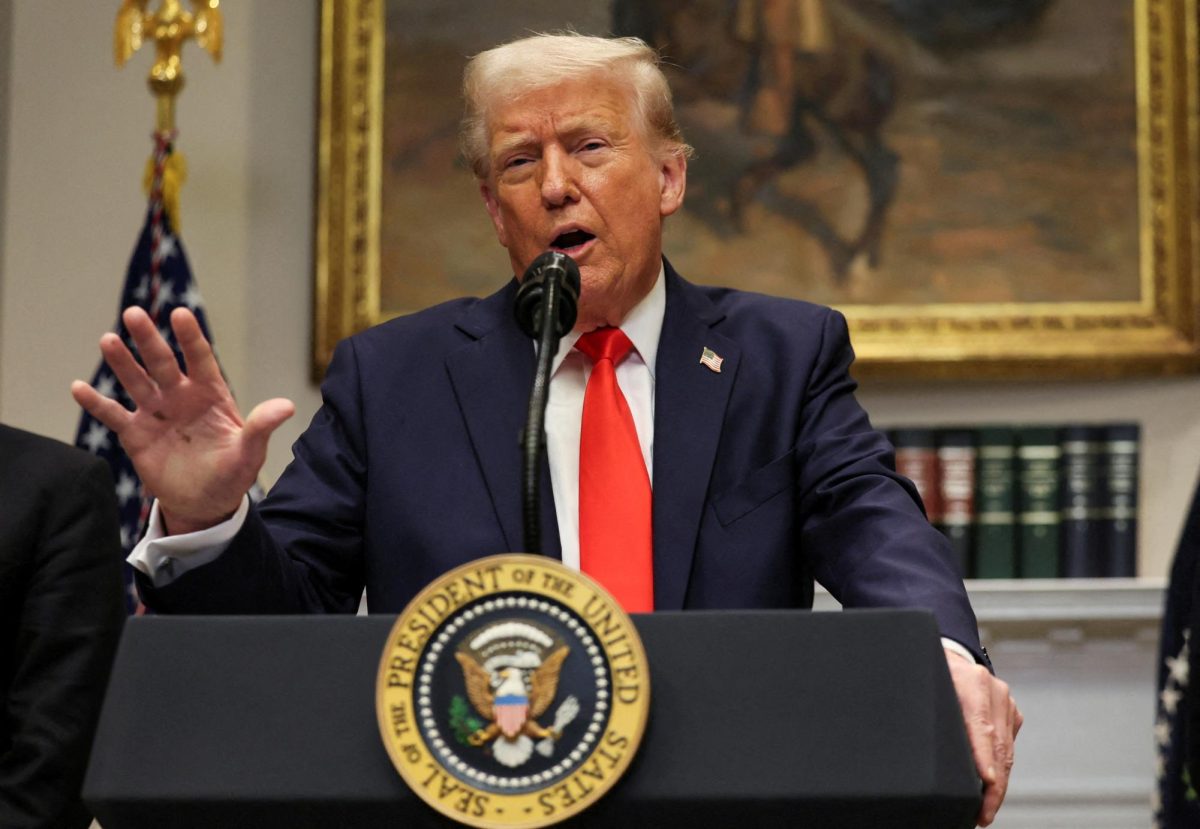
The line between politics and reality TV has worn dangerously thin. A conservative Republican blogger recently slammed Obama in an article titled “Obama Eats Dog.†The article included an excerpt from the President’s autobiography, which described Barack sampling dog meat as a child in Indonesia. “Obama eats Dog,†the headline boldly exclaimed.
This irrelevant attack on a political opponent indicates a significant trend. In a culture that is increasingly dependent on entertainment, politics have become just another venue for drama and scandal.
In these months before theelection, many campaign ads focus on the shortcomings of their political opponent. These adsillogically prefer to convince the public that their opponent is the wrong man for the job. However, they make no mention of the candidate they are trying to support.
This reflects the attitude of many political candidates. Who needs to look good when you can make your opponent look worse? It is an attempt to categorize politicians into two completely nonexistent categories: good and evil.
While grabbing the attention of the public, this behavior succeeds in another regard-it distracts the viewers from those icky topics that politicians call policy. Policies are difficult to understand and, because of the infinite differences in personal opinion, difficult to discuss.
It seems that politicians prefer to avoid any subject that would make the public disagree with them. However, the subjects that most people avoid are the ones that require the most discussion. Silence, although appealing, is not a solution.
A few topics that haven’t received the media attention they deserve: The India-Pakistan conflict. Global disease and malnutrition. The civil war in the Congo. Foreclosure rates and the housing market. Instead, media reporters choose to focus on Michelle Obama’s order of a 1,700 calorie hamburger at the Shake Shack in Washington D.C. Sure, we know where our priorities are.
The media is confronted with another problem: America’s attention span. The messages that most dramatically affect the public opinion are written in bold typefaceon the front of People magazine. People don’t have time to discuss political strategies. People want headlines, and the more shocked they are the better.
A blogger on “The Dirty†recently compared pictures of Romney, Biden, and Obama shirtless. The caption said,“Who do you think would win a fight?†Although most voters aren’t determining their vote based on the candidates’ naked torso, the article serves as an apt caricature for the media’s attention to the most stunningly trivial details.
This political trend has potentially disturbing consequences for the rising generation of voters. We are barraged with such a constant flow of media opinion that it seems almost unnecessary to develop an opinion of our own. The scandals that confront us everyday seem to take precedence over the issues that truly affect our future.
The solution? Discussion and good, old-fashioned compromise. Our generation must learn to focus on the most pressing problems, even if they are a touchy subject. Only once we can openly discuss those issues can we set out to solve them.
Only a few CHS students will be eligible to vote in the coming election. But that doesn’t mean the election shouldn’t concern the rest ofus. We should view these months as an opportunity to look past the shocking headlines and trivial accusations. Maybe then we will see what these elections truly are: the key to improving our future.







